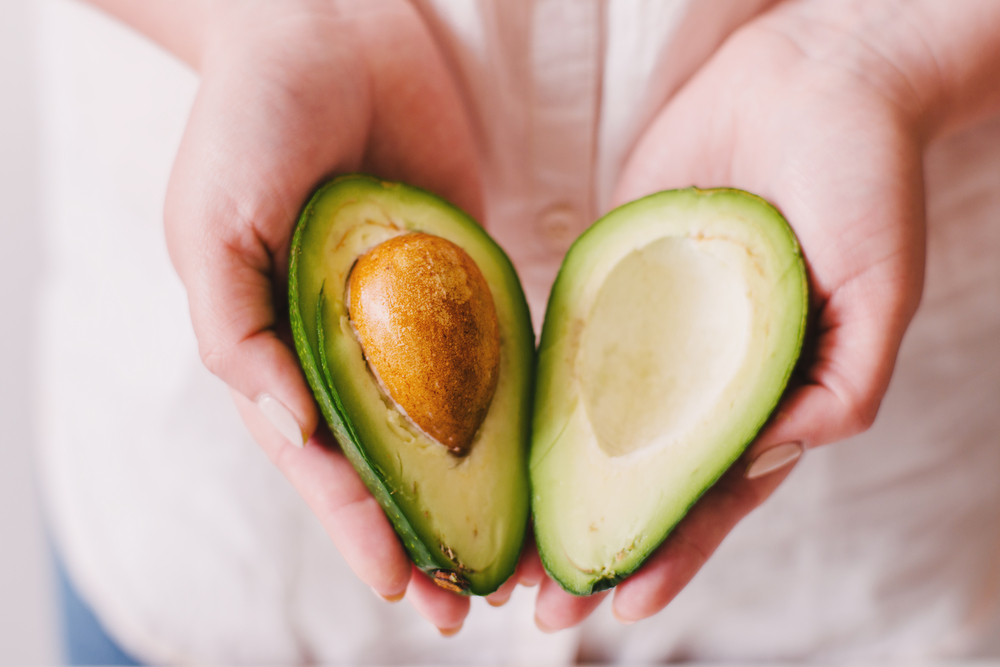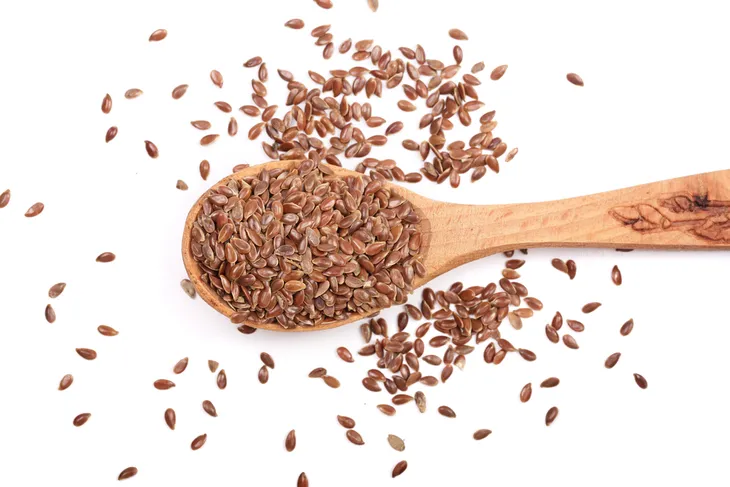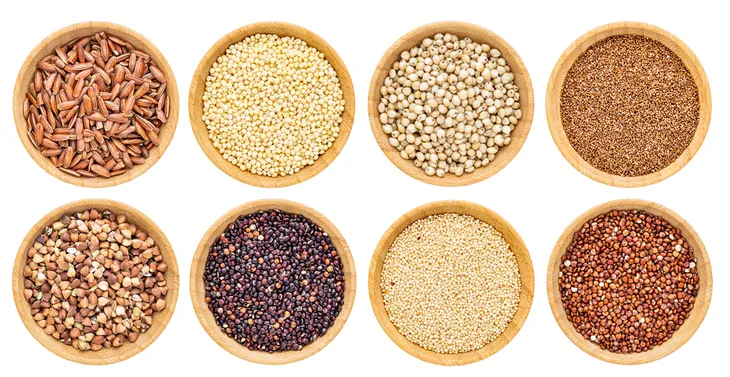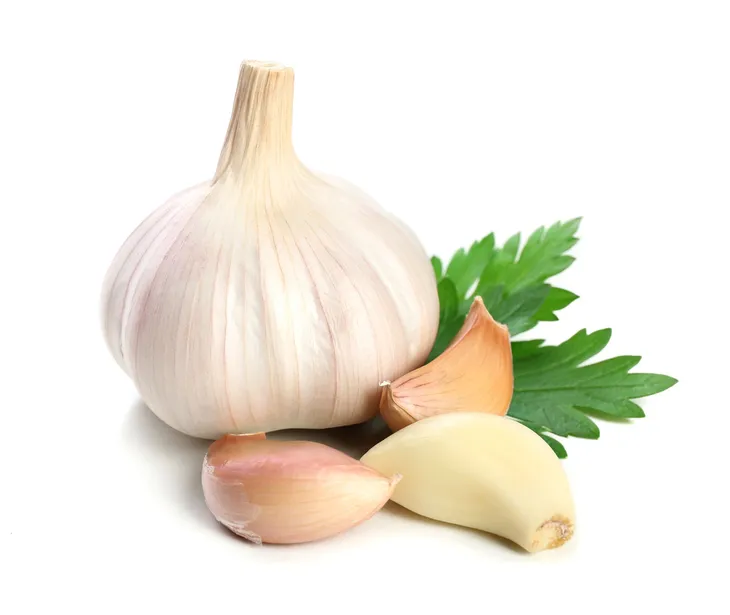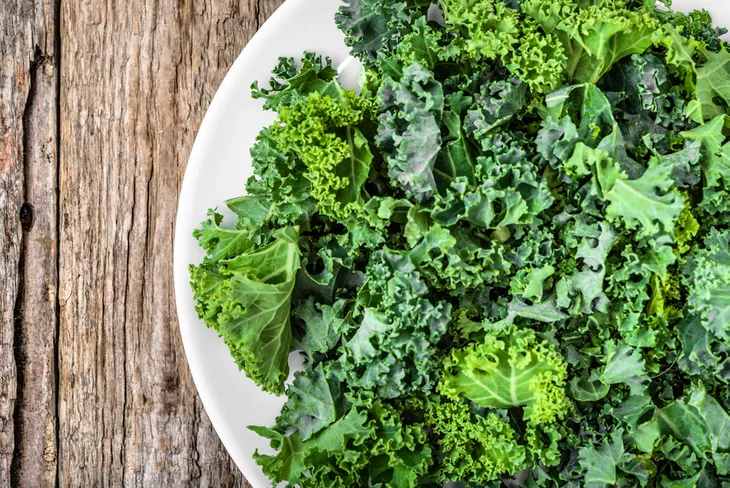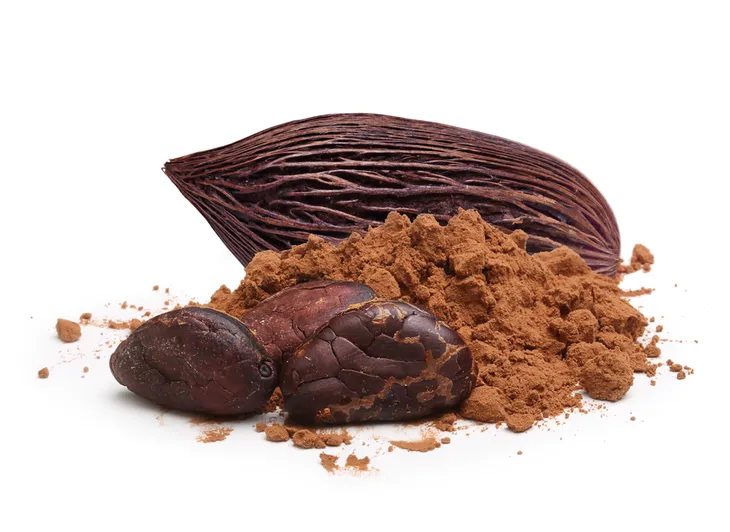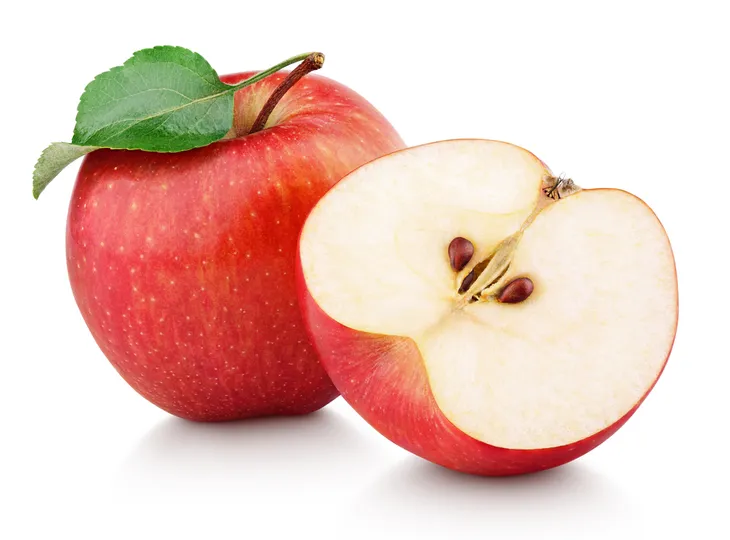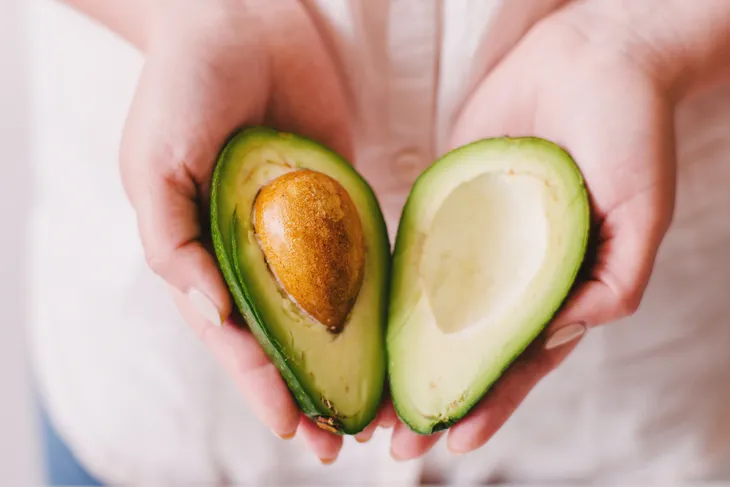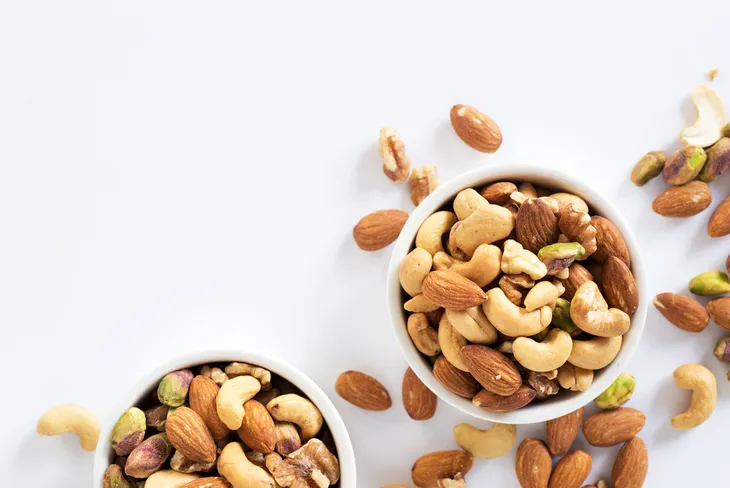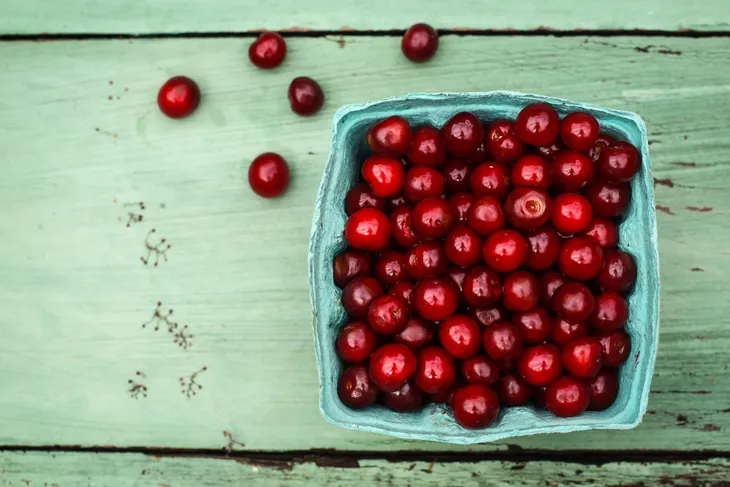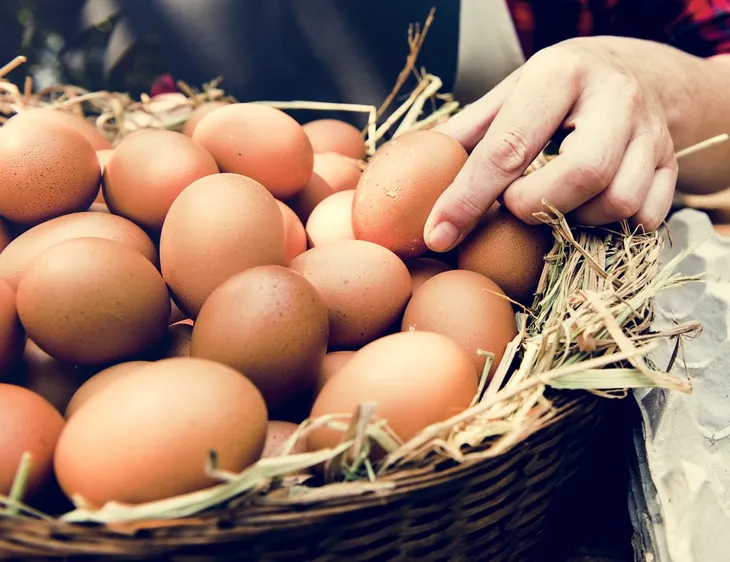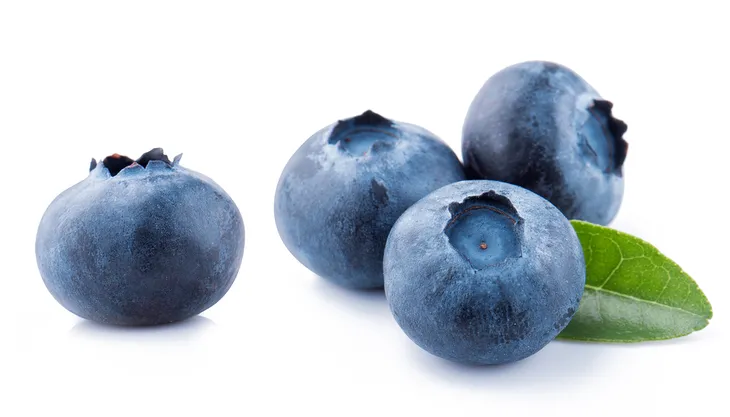Most of us are at least somewhat familiar with diabetes, whether it’s because we know someone who has been diagnosed with it or just from word of mouth. A less familiar condition is prediabetes, which leads to type 2 diabetes. Luckily, prediabetes can be reversed — it just takes a few lifestyle changes like exercise and diet.
Managing blood sugar levels is extremely important to our overall health and not just because it lower our risk of developing diabetes. High blood sugar has been linked to inflammation, heart disease, and kidney disease. To help manage blood sugar levels, here’s a list of foods that won’t magically lower blood sugar (you’ll need medication to do that), but they all have a low Glycemic Index (GI) which means they won’t raise blood sugar like many other foods.
Want diet & nutrition content delivered straight to your inbox? Sign up for our exclusive diet & nutrition newsletter!
Flax and Chia Seeds
Flax and chia seeds might be small, but they are mighty! If they aren’t already, these wholesome ingredients should be a kitchen staple in your home, especially for someone who’s at risk for high blood sugar. These seeds are high in insoluble fibers which helps control the rate in which sugar is released into the bloodstream. A study published in the journal Diabetes Care found that one variety of chia seed “helped participants control blood glucose, reduce blood pressure, and lower C-reactive protein, a major marker of heart disease risk,” writes Diabetes Self Management. Let’s not forget about flaxseed which is high in magnesium, a mineral that Best Health says encourages cells to use the hormone produced by the pancreas to regulate the amount of glucose in the blood.
Chia seeds can be easily added to any meal and they won’t cause any problems with blood sugar because according to Healthline, they have a GI of only one. Unlike chia seeds, flax seed must be grounded in order for it to be full digested. So either buy it already ground, or buy whole flax and grind it yourself in a coffee grinder or spice mill.
Whole Grains
When shopping for bread and pasta, do you buy whole grain or refined grain? Hopefully your answer to that question was whole grain because refined grains are one of the worst culprits for spiking blood sugar because they have been stripped of all their nutrients and are loaded with sugar (plus they are high in carbohydrates). When possible, you should always opt for whole grains because like many other foods on this list, whole grains help slow digestion down which reduces the need for glucose regulation and encourages blood sugar levels to rise more slowly. This helps reduce the risk of type 2 diabetes. To prove this point, Healthline cites a study published in The American Journal of Clinical Nutrition which proved that eating whole grains are beneficial to anyone who suffers from a sensitivity to regulating the amount of glucose in the blood. In addition to their ability to slow the rise of blood sugar levels, whole grains are a good source of fiber, phytochemicals, and contain anti-inflammatory nutrients and antioxidants.
Best Health warns not to just buy any old whole wheat or whole grain bread. You have to read the ingredients at the back and make sure that the first ingredients use the word “whole,” otherwise don’t buy it.
Garlic
Garlic might not be the greatest thing for our breath, but it does tout some pretty great health benefits like lowering blood sugar. Garlic and onions “contain sulfur compounds that lower blood sugar and reduce the risk of diabetes,” says Better Nutrition. “Garlic can also lower blood pressure, LDL cholesterol, and triglycerides in people with diabetes.” Healthline cites a report that shows how garlic can lower blood sugar levels when you haven’t eaten, and another study published in the Food and Chemical Toxicology journal which found that onion could also have a positive effect on diabetes.
Healthline also points out that eating garlic won’t do any harm because it doesn’t have a GI ranking because it doesn’t contain any carbohydrates which means it should have virtually no effect on blood sugar levels.
Leafy Greens
We’ve all been told over and over again that we need to start eating our greens — and there’s a reason for it! Leafy greens like kale, spinach, lettuce, turnip greens, collards and swiss chard contain high amounts of fiber, vitamin A, antioxidants and magnesium which are especially important for those at risk for diabetes because they help lower blood sugar.
A review of six studies published in the BMJ looked at the effect fruits and vegetables have on type 2 diabetes. The study found that all fruits and vegetables are good, but leafy greens had the most substantial impact. Researchers found that if a person eats 1.35 servings (which adds up to about 1 1/3 cups raw and 2/3 cooked) of leafy green vegetables on a daily basis they’ll reduce their risk of type 2 diabetes by 14-percent.
Cacao
If you’re like me, you probably don’t even know what cacao is! According to Healthline, it’s a “bean like seed” that is used to make delicious treats like chocolate or chocolatey spreads and cocoa butter. Don’t get your hopes up quite yet because we’re not asking you to start eating chocolate to lower your blood sugar. Cacao actually tastes quite bitter because it’s what chocolate looks like before all the good stuff is added, like confectioners and sugar.
So what makes cocoa so good for blood sugar levels? “Cacao seeds are high in antioxidants. They also contain a flavanol called epicatechin, which regulates glucose production by activating key proteins. It can help to stabilize blood sugar, even in those who already have diabetes,” writes Healthline.
Apples
Apples are a great choice for a quick snack because they’re low in calories and high in fiber which means they’ll keep you feeling full for longer. In addition to this, they can be useful in monitoring blood sugar levels. A study published in the European Journal of Clinical Nutrition looked at 9208 Finnish men and women and followed their food consumption, mainly looking at the effects of those who ate lots of foods high in the flavonoid quercetin against those who did not. Their results showed that “the intake of apples is related to a decreased risk of thrombotic stroke,” and those who ate more apples had a 20-percent less chance of developing diabetes and heart disease.
If you don’t like apples, Men’s Health says you can also find quercetin in onions, tomatoes, leafy greens, and berries.
Avocado
Avocados contain polyunsaturated fatty acids (PUFAs) and monounsaturated fatty acids (MUFAs) which are extremely important for regulating blood sugar, says Healthline. Avocados in particular have been known to slow down digestion which helps stop blood sugar from spiking after a meal. According to Best Health, high fat foods like avocados might even reverse your body’s resistance to the hormone that regulates glucose in the blood. This will make a huge difference in blood sugar levels in the long term.
A study published in the Critical Reviews in Food Science and Nutrition found that “avocados also have a diverse range of other nutrients and phytochemicals that may have beyond cholesterol vascular health benefits. In particular, avocado’s potassium and lutein may help promote normal blood pressure and help to control oxidative/inflammatory stress, respectfully.” These are factors that can increase the risk of diabetes.
Prevention talked to Hillary Wright, RD, director of nutrition for the Domar Center for Mind/Body Health who pointed out that healthy fats are great because they cover both quality and quantity and have been linked to improving the body’s resistance to glucose regulation. If you don’t like avocados, no problem! Other great sources of healthy fats are nuts, seeds, olive oil and canola oil. Remember to eat these foods in moderation because they are still high in fat content.
Nuts
Even though nuts are high in calories, they can have some really great health benefits! According to the Mayo Clinic there is a great deal of research that suggests nuts are good for heart health. While most of it is still inconclusive, there’s no harm in adding them to your diet (if you’re not allergic, of course). “One way nuts may help your heart health is by lowering the low-density lipoprotein (LDL, or “bad”) cholesterol levels,” writes the source.
Best Health elaborates on their health benefits by pointing out that nuts are high in fiber content which means they slow down the digestive process. “Slow burning foods” are much friendlier to our blood sugar levels because they avoid any dramatic spikes. It’s important to note that in addition to being high in calories, nuts are high in fat (Best Health assures it’s the healthy monounsaturated kind), so just be sure to eat this food in moderation.
Sour Cherries
Most fruit raises actually raises blood sugar, but there are a select few that don’t necessarily help lower blood sugar levels, but they don’t raise them like other fruits. Sour cherries are one these fruits because they have a very low GI score. Healthline also points out that they contain a chemical called anthocyanins which some studies have found may protect against conditions like diabetes. So if you’re someone who needs to be careful about blood sugar levels, try eating more sour cherries!
Eggs
Most people enjoy eating eggs, but they do sometimes get a bad rep because they are high in cholesterol. According to Healthline, they aren’t at all bad for someone who is prediabetes and that people with type 2 diabetes don’t need to worry about dietary cholesterol.
“Like all pure protein sources, eggs have a GI score of 0. Eggs can also increase fullness and reduce cravings. But what you add to eggs can counteract their health benefits,” notes Healthline. If you find you don’t have time to go through the process of cooking an egg each morning, try hard boiling a few and bringing them as a snack or breakfast on the go.
Blueberries and Blackberries
As we mentioned previously, fruits don’t usually fall on any lists dedicated to blood sugar because many fruits actually raise blood sugar levels! Thankfully, blueberries and blackberries aren’t as bad as others. “These berries are high in fiber and have the highest concentrations of anthocyanin. Anthocyanin inhibit certain digestive enzymes to slow down digestion. They also prevent spikes in blood sugar after eating starch-rich meals,” writes Healthline.
A study published in the Journal of Nutrition found that by adding a dietary supplement with blueberry bioactive to a smoothie improved the body’s resistance and sensitivity to the hormone that regulates glucose levels in the blood.
Want diet & nutrition content delivered straight to your inbox? Sign up for our exclusive diet & nutrition newsletter!
